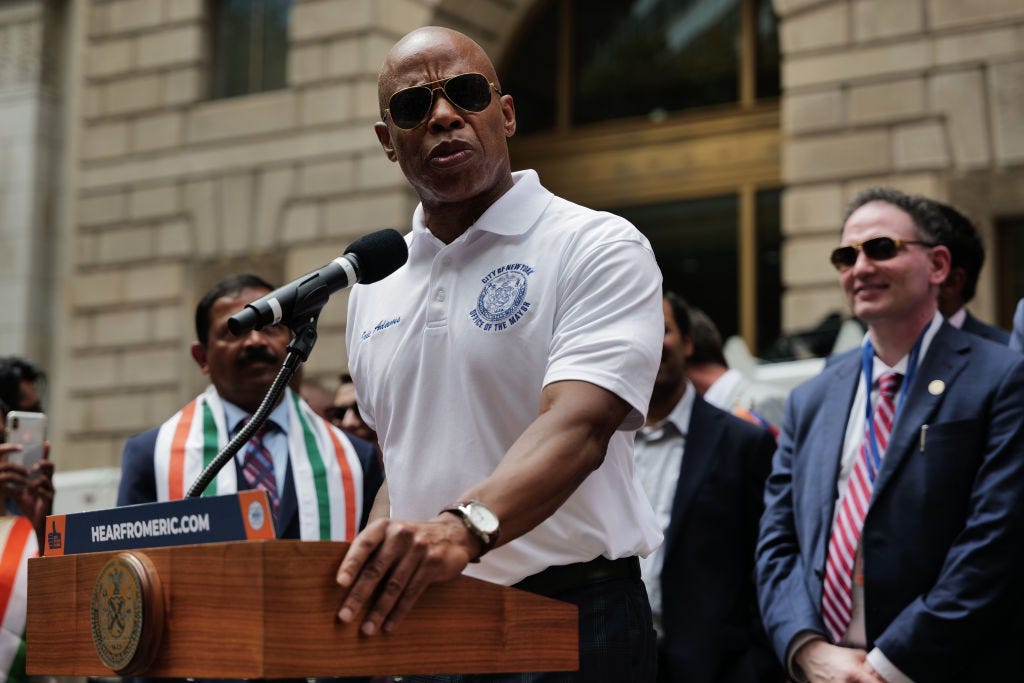What is Eric Adams Afraid of?
Questions, apparently
There’s an inside baseball controversy bubbling up in New York City at the moment. If you are a member of the City Hall press corps and regularly go to mayoral press conferences, you may now ask “off topic” questions to Eric Adams only once per week. I’m no longer a City Hall beat reporter—I did it years ago and enjoyed it then, but do not miss it—but I still follow the doings of the government closely. Truth be told, unless you need some specific piece of information, the press conferences can become a time-suck and a bore. This is true no matter who is mayor.
Mayors have always tried to control the flow of information. In his second term, Bill de Blasio became more insistent on dividing his press conferences between those where reporters could only ask about the topic at hand and those where they could ask anything they wanted. If reporters deviated, de Blasio would peevishly refuse to answer the questions. Reporters, rightfully, complained. But de Blasio, even in this restrictive period—the arrival of the pandemic would effectively end this policy—would subject himself, weekly, to one-on-one interview with Brian Lehrer of WNYC and Errol Louis of NY1. Both men have spent decades in the city and know their subject matter well. Neither do softball interviews. Lehrer, as a radio host, has the added benefit of callers. A Lehrer caller is like a WFAN bridge-and-tunnel guy with an advanced degree; they sparred with de Blasio plenty.
Adams doesn’t regularly speak with Louis or Lehrer. He makes sporadic media appearances with more friendly outlets and has tried, with little success, to get city-run podcasts off the ground. And now, only once a week, can reporters ask him a question on any topic they want. Every other day of the week, they will be limited to whatever announcement Adams might make. If he’s speaking about schools, the questions must be about schools. If he’s announcing a sanitation policy, he can only be asked about trash. The policy, from the perspective of the media and the broader public, is limiting and counterproductive. New York City is a very complicated place and the mayor must be available to publicly answer for what might be happening here on a given day. A pressing matter on housing, education, or homelessness can come up on a day where the mayor is straining to talk about some pet project.
Restricting the flow of questions is better for a politician like Adams who has a penchant for misspeaking and indulging in strange tangents. It might be helpful, too, for someone who is never eager to talk granular policy. Adams’ struggles to govern only open him up to further inquiry and journalists, almost two years into his administration, are no longer so pliant. The media was more hostile in the de Blasio years, particularly the Post, but Adams’ penchant for controversies has attracted, at the bare minimum, tougher questions.
Adams doesn’t want to deal with it anymore. He cannot stomach criticism, even when it’s mild. Off-topic is where the pointed questions can come, when he’ll hear from the growing chorus of journalists who are no longer, in theory at least, going to be pliant.
But a person outside the media bubble might ask a very valid question: why do reporters have to do what Adams says? Why can’t they ask the questions they want anyway?
The answer is obvious enough. They can and they should. Bowing to Adams’ dictates is unnecessary and nonsensical.



